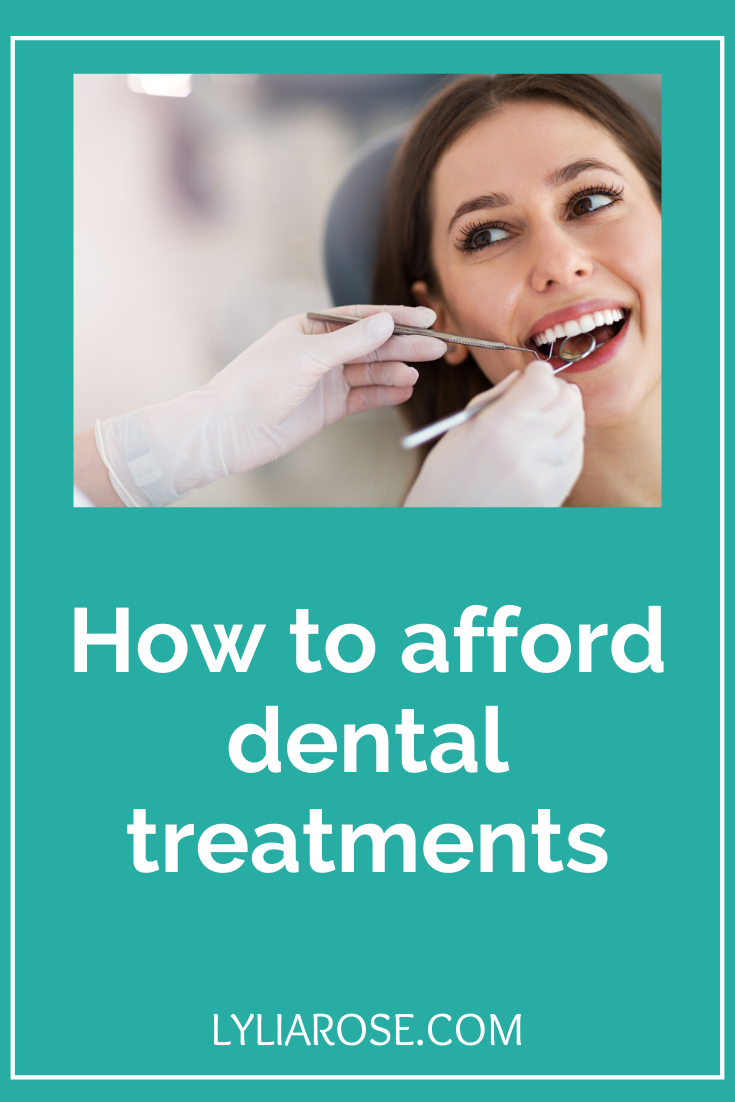How to afford dental treatments
Posted on
Like visiting a GP, you can either choose private healthcare or NHS when it comes to choosing a dentist. The difference is you will have to pay either way for dental treatment, even if you choose NHS dentists.
There are some exceptions whereby those who meet certain criteria can get free NHS dental check-up appointments and some free treatments, but the majority of us have to foot the bill.
If you’ve needed dental care in the past then you’ll already be aware of just how expensive it can be. Costs can easily be in the hundreds, so it’s always handy to have a plan in place for how you’ll pay.
Tips to make sure you can pay for dental procedures:
Use the NHS
It’s much cheaper to use an NHS dentist compared to a private dentist. A dental exam is usually around half the price, if not less. Dental treatments are also much more favourably priced if you can’t afford to pay for private treatments.
If you’re under 20 and a dependant of someone on certain benefits, are in full-time education or pregnant then you might be able to get your dentist check-ups for free with the NHS. Click here to see if you qualify and for a full list of NHS dentist costs.
Join a membership scheme
Rather than pay upfront for my dental exams, hygienist appointments and any emergency care that might be needed, I am a member of a membership scheme at my dental practice. This means I pay a monthly fee which includes two dental exams per year and two hygienist appointments. I don’t have to pay anything on the day as my membership covers the cost.
Membership also gives a lot more benefits than just the appointments. For example, Kiln Lane Dentist, St. Helens offer a membership plan that not only spreads the cost of dental treatment into affordable monthly payments, but gives you a discount overall on the appointments included, emergency cover and money off other treatments.
Choosing a membership plan at a dentist not only covers the cost of your regular dental exams and hygienist appointments, but it also acts as an insurance for emergency care and other benefits, meaning you’ll save money in other areas of your dental care too.
Spread the cost with finance
If you need expensive dental treatment and don’t have an insurance plan, membership plan or enough savings in place, then you might have to consider a finance option. Many dentists will be able to offer finance options directly from the practice via a third party.
Some offer 0% interest if the balance is paid back in full within so many months, so check to see what the exact terms are before committing. If your credit score is good then it might be better to get a 0% purchases credit card to cover the cost to make sure you can pay it back without needing to pay any interest at all.
Save an emergency fund
It’s always a good idea to save an emergency fund for random financial emergencies so you don’t have to get into debt. An emergency fund can cover anything from car repairs, unusually high bills, boiler breakdowns and even your dental treatment.
Whilst most of the time a dental check-up requires no further attention, if something is noticed then the cost for treatment can run into the hundreds or even thousands. It’s always a good idea to have a lump of savings to cover any emergency including unexpected dental costs.
Here are some helpful blog posts on saving an emergency fund:
Why saving an emergency fund is a great idea
How we saved £6500 in 6 months
Look after your teeth!
Being able to afford expensive dental treatment is one thing, but it’s a better idea to practice good dental hygiene to avoid any issues in the first place. Of course not every dental issue can be avoided, even if you follow the rules, but most are preventable.
Avoiding sugary snacks, smoking and excessive alcohol consumption are a good place to start. Brushing and flossing twice a day, drinking only water and going to the dentist twice a year will all help to keep your teeth in check.
By investing a little in your own teeth care routine, you might be able stop having any expensive complications in your teeth and gums.
Related teeth blog posts
Tips for overcoming dentophobia
Braces and bridges at 30– Was it worth it?
Awesome foods for strong teeth
Is teeth whitening worth the cost? + foods to avoid for a whiter smile
Struggling to brush your toddler’s teeth? Try the Brush-Baby!
Please pin!

